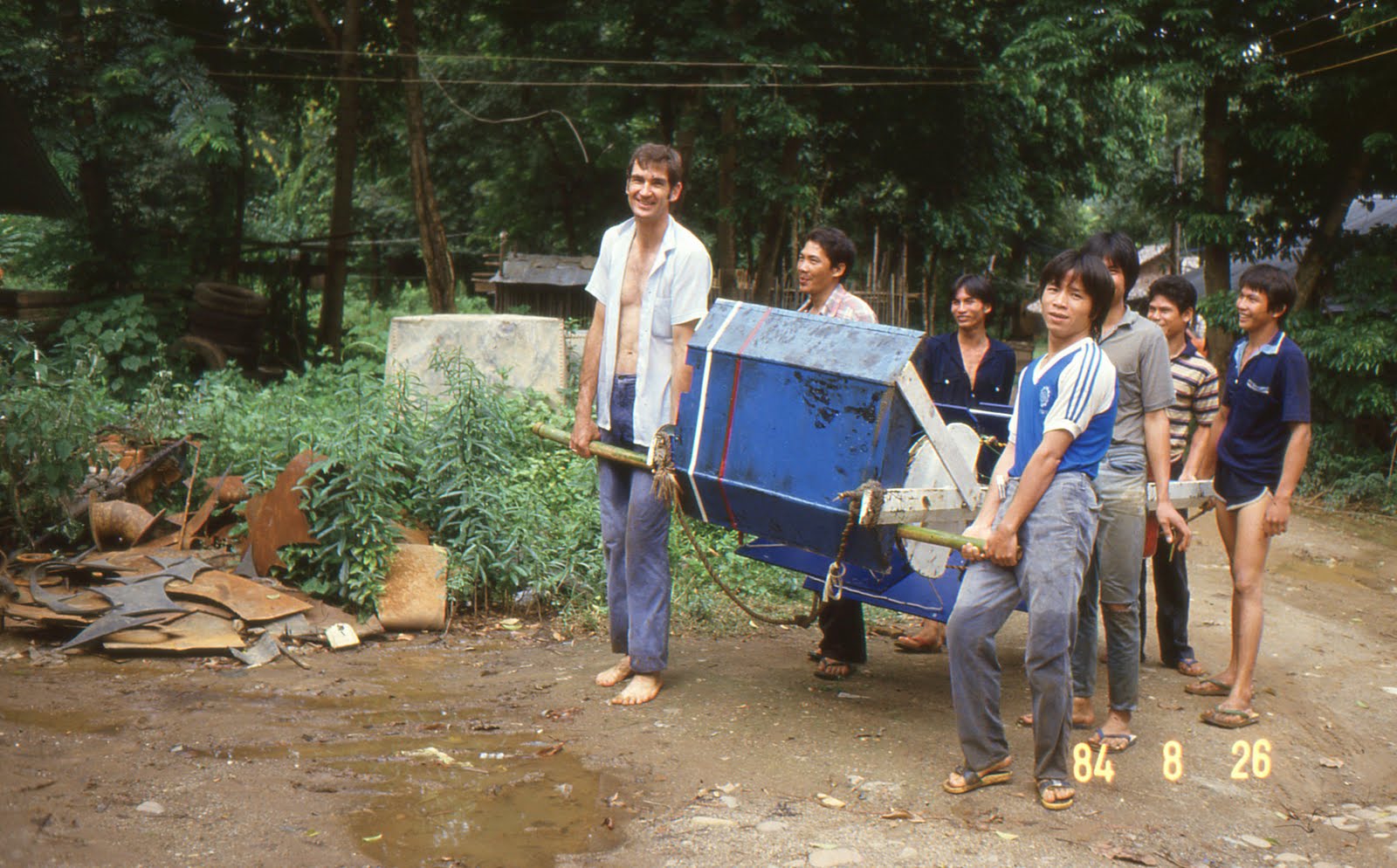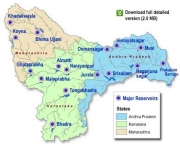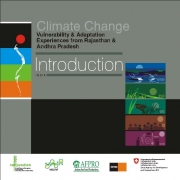/sub-categories/news-and-articles
News and Articles
Linear turbine developed in New Zealand - Trials, drawings, videos
Posted on 18 Jan, 2011 11:17 PMMark 1 model ready for launch 1984

Trials in Pai river northern Thailand 1986
The report of the Krishna Water Disputes Tribunal-II (2010)
Posted on 18 Jan, 2011 08:26 PM KWDT-II freshly assessed the yearly yields in the Krishna and determined the award on the basis of the yearly yield at 65 per cent dependability which was assessed at a total of 2,293 tmcft.
KWDT-II freshly assessed the yearly yields in the Krishna and determined the award on the basis of the yearly yield at 65 per cent dependability which was assessed at a total of 2,293 tmcft.
In its order, announced in an open court, the tribunal allocated a total share of 1,001 tmcft to Andhra Pradesh, 911 tmcft to Karnataka and 666 tmcft to Maharashtra with certain restrictions imposed on each State in keeping with the dependable flows of the rivers on which the allocations have been made. The allocation under the first award (KWDT I) was 811 tmcft for Andhra Pradesh, 734 tmcft for Karnataka and 585 tmcft for Maharashtra.
Articles on rainwater harvesting and river pollution by Janhit Foundation
Posted on 18 Jan, 2011 04:18 PMThese Articles analyse and detail the issues of rainwater harvesting and river pollution
Utility of fresh water flooded forests for large scale water harvesting
Posted on 18 Jan, 2011 03:16 PMThere are vast areas of fresh water flooded forests in Amazon River, Mekong River and Meghna River (Bangladesh) basins. In these flooded forests, the flora & fauna is richer than tropical ever green forests and many tree species grow more than 20 meters in height. These forests are inundated / submerged by river flood water up to ten meters depth for 5 to 7 months duration at a stretch.
School hand washing with soap promotion program
Posted on 18 Jan, 2011 03:16 PMTips on how to put on a fun and practical workshop at rural schools in increase hand washing with soap. Includes use of the tippy tap.
Annual climate summary of India during 2010 - Press release by India Meteorological Department
Posted on 17 Jan, 2011 12:06 PMContent courtesy: Indian Meteorological Department
Mean annual temperature for the country as a whole during 2010 was +0.93 0C above the 1961-1990 average. It was slightly higher than that of the year 2009, thus making the year 2010 as the warmest year on record since 1901.
Considering different seasons, Pre-Monsoon season (March-May) in 2010 was the warmest since 1901 with mean temperature being 1.8 0C above normal
The annual total rainfall for the country as a whole was normal during the year 2010 with actual rainfall of 121.5 cm against the long period average (LPA) of 119.7 cm.
17-30 percent hike in wages under Mahatma Gandhi NREGA - PIB Release
Posted on 10 Jan, 2011 04:49 PMArticle Courtesy: Press Information Bureau
The wage rates under MGNREGA have been increased by the Ministry of Rural Development with effect from 1st January 2011. This will result in 17-30% enhancement of wages under the premier flagship program of the UPA Government across the country. This was announced by the Union Minister for Rural Development and Panchayati Raj Dr. C.P.Joshi at a Press Conference in Krishi Bhawan here today.
Ministry of Environment and Forests Announces Coastal Regulation Zone (CRZ), 2011 and Island Protection Zone, 2011 - PIB Release
Posted on 10 Jan, 2011 04:42 PMArticle Courtesy: Press Information Bureau
The Minister of State for Environment & Forests, Independent Charge Shri Jairam Ramesh today issued the following statement in a Press Conference in New Delhi. In the Press Conference, he announced Coastal Regulation Zone (CRZ) Notification, 2011 and Island Protection Zone (IPZ) Notification, 2011.
Maharashtra Groundwater (Development and Management) Bill (2009)
Posted on 05 Jan, 2011 07:32 PMThe Maharashtra Groundwater (Development and Management) Bill, 2009 aims to facilitate and ensure sustainable and adequate supply of groundwater of prescribed quality, for various category of users, through supply and demand management measures, protecting public drinking water sources and to establish the State Groundwater Authority and District Level Authorities to manage and to regulate, with community participation, the exploitation of groundwater within the State of Maharashtra.
Climate change: Vulnerability and adaptation experiences from Rajasthan and Andhra Pradesh – A report by SDC
Posted on 05 Jan, 2011 06:44 PM This document discusses the process oriented programme of Swiss Agency for Development and Cooperation (SDC) on Vulnerability Assessment (V&A) and Enhancing Adaptive Capacity to Climate Change initiated in the semi-arid regions of India. The aims of this programme include strengthening the resilience of local communities to conditions of unfavourable weather, like adverse alterations in temperature and precipitation leading to the more frequent occurrence of drought and to use the experiences for policy development for climate change adaptation measures at various levels.
This document discusses the process oriented programme of Swiss Agency for Development and Cooperation (SDC) on Vulnerability Assessment (V&A) and Enhancing Adaptive Capacity to Climate Change initiated in the semi-arid regions of India. The aims of this programme include strengthening the resilience of local communities to conditions of unfavourable weather, like adverse alterations in temperature and precipitation leading to the more frequent occurrence of drought and to use the experiences for policy development for climate change adaptation measures at various levels.
Over 60 per cent of the cultivated area in India is rainfed & unfavorable and uncertain rainfall patterns will seriously affect the food, drinking water and livelihood security of millions of children, women and men. Since the initiation of this project, the emphasis on proactive research on adaptation mechanisms has increased at the national level.
The present decade may mark the beginning of a new climate era, characterized by extreme and often unpredictable weather conditions and rise in sea levels. The greatest casualty of climate change will be food, water and livelihood security.